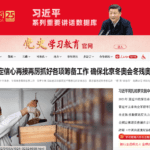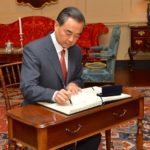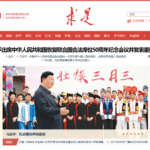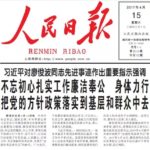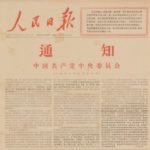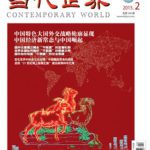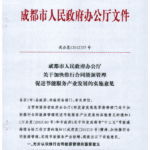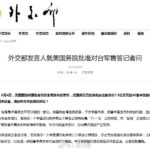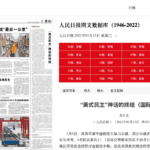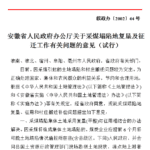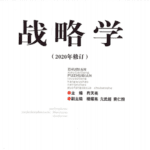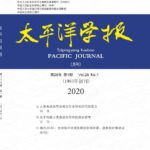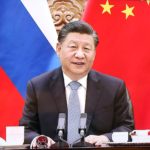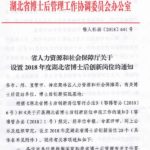Library
| Title | Published | Uploaded | Source | Author | Media Type | Category | Tags | Related Analysis |
|---|
|
The Risks Facing Belt and Road and China’s Choices in the New Situation
新形势下一带一路面临的风险与中国抉择
In this lengthy article, a BRI researcher at China Development Institute, a Shenzhen-based think tank, outlines perceived challenges to the Belt and Road Initiative around its 10th anniversary. These include geopolitical risks from competition with the United States, political and financial instability within partner countries, weak economic growth, and ill-defined goals and poor marketing. The author recommends Beijing improve risk monitoring and project oversight to manage financial and economic risks, and improve the BRI’s reputation across the globe by deepening diplomatic cooperation with a wide array of countries. |
Yan Shaojun 颜少君 | |||||||
|
Economic Security Risks in Belt and Road Implementation and Their Control Methods
“一带一路”实施中的经济安全风险 及其管控路径
A researcher at Peking University explores risks to future projects under the Belt and Road Initiative (BRI). These risks, in his analysis, range from intensifying geopolitical competition to instability in the business environments of partner countries. The author highlights the need to address concerns in partner countries about the ultimate intent of BRI investments, associated with the heavy involvement of China’s SOEs. To address these risks, he recommends increasing intergovernmental dialogue with host countries, implementing risk assessment systems, and improving the reputation of the BRI by marketing Chinese culture through international exchanges, among other measures. |
Wei Xin 韦欣 | |||||||
|
Qu Qingshan, Director of the Central Party History and Documentation Research Institute: A Powerful Ideological Weapon for Building a Strong Financial Nation
中央党史和文献研究院院长曲青山:建设金融强国的强大思想武器
Qu Qingshan, one of China’s top Party theorists, argues that developing and modernizing the financial system is an integral component in the pursuit of modernization and “rejuvenation of the Chinese nation.” He emphasizes that for China to be a strong player in the global financial system, several structural risks in the domestic finance industry must be addressed. This piece appears in one of the leading Party newspapers and echoes Xi Jinping’s recent emphasis on strengthening the financial system, signaling policy priorities. |
Qu Qingshan 曲青山 | |||||||
|
Xi Jinping Emphasizes Accelerating the Development of New Qualitative Productive Forces to Solidly Promote High-Quality Development during the Eleventh Collective Study Session of the CCP Central Committee Politburo
习近平在中共中央政治局第十一次集体学习时强调 加快发展新质生产力 扎实推进高质量发展
The CCP Politburo holds “collective study sessions” on a semi-regular basis, in which an outside academic or government expert leads a discussion on a selected topic. Such sessions are important signals as to what issues the senior leadership finds important. The eleventh collective study session of the 20th Central Committee Politburo was held on January 31, 2024 and was presided over by Xi Jinping. At this session, Xi delivered a speech emphasizing the urgency of accelerating high-quality development through technological innovation, with a focus on upgrading advanced manufacturing, deploying clean technologies, and building better talent pipelines in the science and technology fields. |
||||||||
|
A Reshaped World? New Features of Artificial Intelligence and National Security under the Rise of ChatGPT
被重塑的世界?ChatGPT崛起下人工智能与国家安全新特征
Scholars from Huaqiao University explore the implications of generative AI for China’s prosperity and national security, following the launch of ChatGPT. They emphasize the pivotal role leadership in AI research and applications will play in global power distributions going forward, given implications for standards-setting ability, productivity growth, and information control. |
Huang Rihan 黄日涵, Yao Haolong 姚浩龙 | |||||||
|
Artificial Intelligence-Generated Content (AIGC) White Paper [Excerpt]
人工智能生成内容(AIGC)白皮书
This white paper from the China Academy of Information and Communications Technology, a key research institution advising the government on science and technology issues, explores the potential impacts of generative AI. Written before the launch of ChatGPT, the paper focuses on applications around the consumer experience – in terms of e-commerce, film and TV, and news and broadcasting. |
||||||||
|
Wu Zhaohui, Member of the Party Group and Vice Minister of the Ministry of Science and Technology: Brain-Computer Intelligence and Human-Computer Collaboration are Important Directions for AI Development
科学技术部党组成员、副部长吴朝晖:脑机智能、人机协同是人工智能的重要发展方向
Wu Zhaohui, vice minister of the Ministry of Science and Technology and China’s lead delegate at the 2023 Bletchley AI Summit, delivered a keynote address at a summer 2023 AI conference in Beijing. This news coverage includes highlights of his speech where he suggested ChatGPT will usher in a ‘new industrial revolution,’ and have significant impacts on labor, production, business models, and the global economic landscape more broadly. |
||||||||
|
Li Qiang Chairs the State Council Executive Meeting to Study Comprehensive Measures for Rural Revitalization
李强主持召开国务院常务会议 研究全面推进乡村振兴有关举措等
This is a news report of a January State Council meeting, where rural revitalization, regulation of the food delivery industry, and capital market regulation were discussed. Alongside these topics, the State Council emphasized the need to better integrate artificial intelligence (AI) in manufacturing. This signals focus at senior leadership levels on the role AI can play in China’s bid to become an advanced manufacturing powerhouse. |
||||||||
|
What Topics Can Be Discussed in the China-U.S. Artificial Intelligence Dialogue
中美人工智能对话可以谈些什么
Meeting in San Francisco in November 2023, Biden and Xi agreed to launch U.S.-China talks on the risks associated with advanced AI systems and potential areas for bilateral collaboration. In this piece, researchers at Tsinghua University detail where Washington and Beijing’s interests on AI issues might converge, and what they see as the most fruitful areas for discussion. While there is some consensus on basic principles around AI in the defense sphere, they argue, more fruitful discussions will center on non-traditional security fields – including the social governance challenges engendered by AI and the application of AI toward anti-crime and anti-terrorism objectives. |
Wang Yifan 王一凡, Zhu Rongsheng 朱荣生 | |||||||
|
The Belt and Road Initiative and China's Strategy
论一带一路与中国战略
This is a transcript of a July 2023 speech delivered by Shi Yinhong, an international relations scholar at Renmin University, and an interview conducted by Xue Li, a researcher at the Institute of World Economy and Politics of the Chinese Academy of Social Sciences. Shi argues that due to rising suspicion of China in developing countries and economic resource constraints at home, Beijing must become much more targeted and responsive to the needs of developing countries in initiating and facilitating projects along the BRI. Shi also encourages Beijing and Chinese experts to be careful when making public assessments of the geo-strategic significance of the BRI so as not to raise concerns in potential partner countries. |
Shi Yinhong 时殷弘 |
